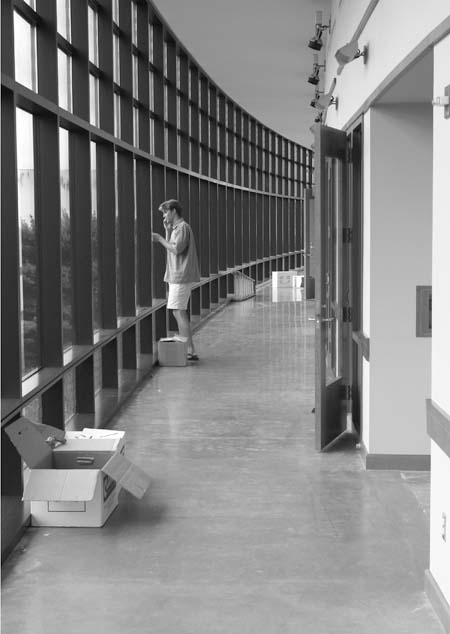
Two professors from the Department of Biomedical Engineering were elected to the prestigious American Institute for Medical and Biological Engineering, or AIMBE.
Associate Professor of Biomedical Engineering Anjelica Gonzalez and Associate Professor of Pathology and Biomedical Engineering Themis Kyriakides are among 156 of the nation’s most acclaimed medical and biological engineers to be inducted this year. They will join the AIMBE College of Fellows, which currently has over 2,000 members and represents the top 2 percent of the bioengineering community. The press release announcing the electees cited induction into the institute to be one of the highest professional distinctions, bestowed on those who have taken large strides in biomedical research, technological innovation, practice and education.
“It was exciting and an honor,” Gonzalez said. Kyriakides echoed the sentiment while noting that, for him, recognition from the society despite not being a classically trained bioengineer was “double the honor.”
For over a decade, Gonzalez and Kyriakides have each made major contributions to the development of biomaterials, as well as research regarding the human body’s reaction to foreign materials and devices.
Jay Humphrey, professor of biomedical engineering and chair of the department, wrote in an email to the News that both professors “are passionate teachers in the classroom” and that the inductions serve as “very appropriate recognitions of their many and diverse contributions to advancing health care through research and teaching.”
Gonzalez works on developing biomimetic systems, or engineered systems that imitate human health and disease processes in tissues, with the goal of being able to test drugs that were found to be ineffective in animal trials. Creating these model systems, Gonzalez says, can allow researchers to “actually get an idea of how human disease happens and the best ways to treat it.”
Among her many contributions is PremieBreathe, a relatively inexpensive respirator that can be utilized to combat potential breathing problems in premature infants. The device is a low-cost solution for dealing with the shortage of resources for managing respiratory complications in low- and middle-income countries. Particularly evident in this project is Gonzalez’s underlying goal to create “translational products.”
“Translation, from my perspective, means that you’re developing something that is going to be helpful to humans in the end,” she explained. “With PremieBreather, that takes the form of creating a device that can have immediate, helpful applications.”
For his research, Kyriakides focuses on understanding the interface between biomaterials, both synthetic and native, and the way the human body interacts with them.
“There’s two levels of information we’re trying to get out of this,” he said. “One is trying to figure out exactly how the body perceives these types of materials so we can understand the process better.”
Kyriakides said the overall goal of his work is to use such information to design new strategies and innovation that improve health outcomes. More specifically, Kyriakides’ lab investigates the role and mechanism of the protein TSP-2 and the molecular events that transpire in the body’s response to a foreign device or biomaterial, with the aim of translating those findings to engineer vascular grafts, or engineered tissue for blood vessel procedures. The work, he said, is currently in a translational phase with the researchers “in collaboration with industry.”
“TSP-2 is one of the proteins that got me involved in biomedical engineering,” he added. “I’ve been working with this particular protein for a long time.”
Both professors emphasized the importance of science communication and informing the public about the potential benefits of new research. Gonzalez sees an important part of her role as imparting knowledge about “the value of science and scientific development” to the wider population.
Kyriakides stated that he is excited about the opportunities being a fellow of AIMBE can create to “give back and become an advocate for science.”
AIMBE was founded in 1991.







